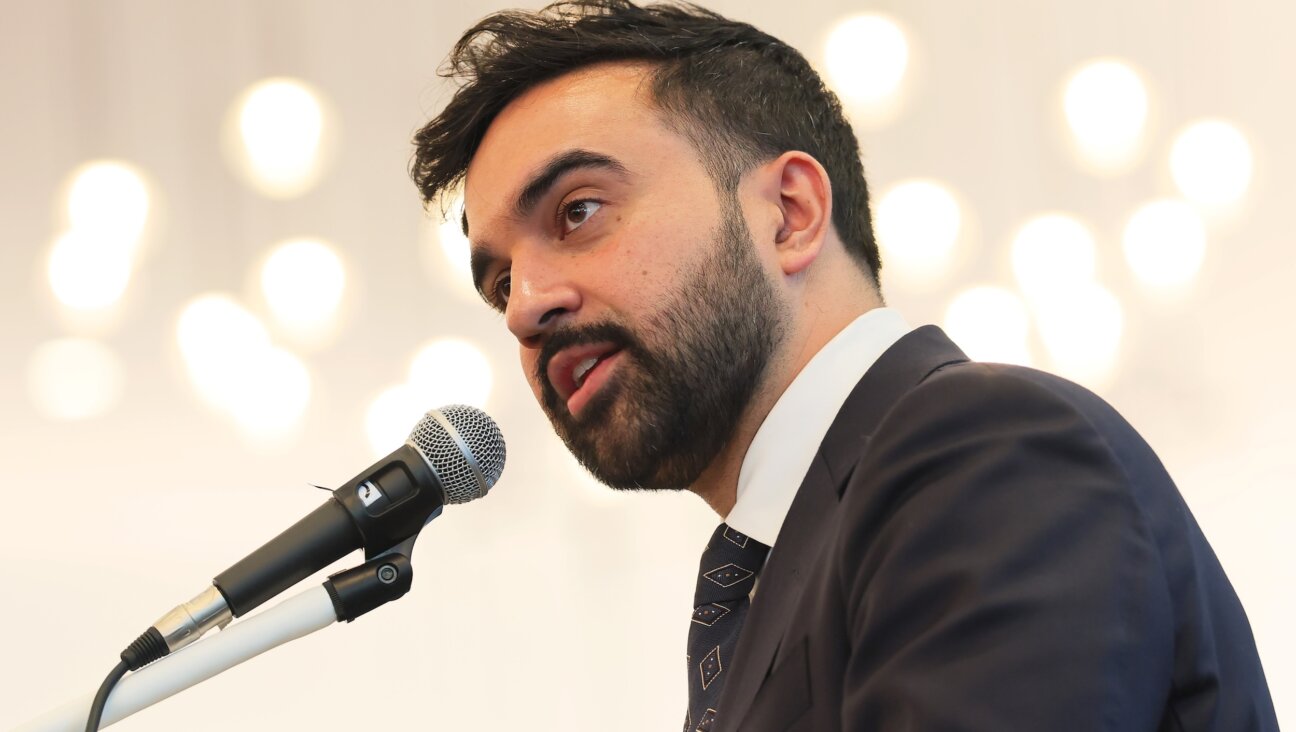Conquering
Perhaps there was a time when the secular-religious divide — it is of Jews I write — made sense. In Eastern and Central Europe during the period of 1850 to 1930, it may have been the case that “secular” Jews were genuinely secular, as some few remain today.
But here, now? For all that the survey research on America’s Jews persists in drawing fairly sharp distinctions between the two types, my own sense is that the distinction is increasingly meaningless. It doesn’t tell us very much at all to know whether a Jew observes some or even many of the traditional commandments, nor does it even add to our understanding to learn whether she asserts a belief in God, whatever such “belief” may be taken to mean.
Consider: You don’t have to take God literally to take God seriously. One way or the other, God is at the heart of the grand metaphoric system we call “Judaism.” And wrestling with God is not restricted to “believers.” The notion that there is some sort of binary choice here, that you’re either a believer or — or a what, a heretic? — does not accord with a reality in which growing numbers of people are in search of the transcendent.
By the usual definitions, for example, Yehuda Amichai, the late great Israeli poet, was a doggedly secular man. But you cannot easily grasp Amichai’s poetry unless, like him, you have an easy, even an intimate, familiarity with classical Jewish sources. Nor can you easily grasp what all those youngish people are doing at synagogues like New York’s B’nai Jeshurun — or hundreds of others around the country — unless you come to understand the quest, often urgent, to be in touch with something holy.
Ouch. I know that the word “holy” can be off-putting, evoking mediocre paintings of elderly Jews dressed in traditional garb, or those tchotchke statues featured in so many of Jerusalem’s gift stores, the kitschy stuff you’d never think to buy except that it depicts what passes for authentic Jews.
Once, I was in a synagogue in Cairo. The year was 1978, and the occasion was the eve of the first peace conference, bringing together Israeli, American and Egyptian diplomats. (The Palestinians chose to boycott the conference.) The synagogue was packed: the remnants of the Egyptian Jewish community, the whole of the diplomatic corps and many hundreds of journalists, there to cover the conference and all its attendant functions, such as the Friday-night service where I sat with others as a member of an improbable congregation.
The journalists were almost all gathered in the rear of the sanctuary. But within just a few minutes after the services had begun, I witnessed a dozen or two of them — reporters, cameramen — set down their equipment, cover their heads with handkerchiefs and step forward to join the congregation.
I have no doubt that for most or even perhaps all of these, this was the first time in many years they’d set aside their professional duties in favor of the simple act of belonging. Was that a religiously motivated act? I do not think so. It was a religious moment, an essentially irresistible desire to be part of this mysterious people, the Jews.
Others — mostly historians, anthropologists, journalists — have, of course, observed similar phenomena. Social scientists, on the other hand, seem hemmed into more easily measurable categories. Do you light Sabbath candles? One point for religious. Do you have mostly Jewish friends? One point for secular. But that is nonsense; Jewish identity cannot so trivially be parsed.
And it has been nonsense for some time now, since long before the current focus on “spirituality.” Irving Howe wrote that even though we make “distinctions between religious and secular ideologies… the two had a way of becoming intertwined.” The same point is persuasively made by historian Hasia Diner in her new and quite wonderful history of America’s Jews, “The Jews of the United States, 1645-2000.”
Who knows, or can know, whether the act of contributing to Mazon counts as a religious or as a secular act? And who cares? (Full disclosure: I founded Mazon in 1985.)
Contributors to Mazon are, presumably, moved by the continuing scandal of hunger. They are likely moved, as well, by the words of Isaiah, or by Mazon’s manifestly “religious” appeal for contributions that will give bite to the organization’s citation of the words from the Haggada: “Let all who are hungry enter and eat.” Must we really disentwine the multiple strands that together represent the central tendencies of our people? For that matter, is “Let all who are hungry enter and eat” a religious or a secular sentiment? (Answer: Neither. Answer: Both.)
For some people, the awareness of God in and of itself provides transcendence. But God is surely not the only answer to the quest for a transcendent moment or even for an ongoing sense of the holy, the sacred. Nor, given the ways in which Jews have chosen to live their lives, is God the only Jewish answer to such quests. There is simply no compelling reason for God to be an impediment to a passionate Jewish life.
And if for some strange reason, transcendence and sanctity are thought insufficient, there is also and more simply the search for and the satisfactions of community.
Pure rationalists may set themselves firmly against such tendencies, dismissing them as “romantic,” “mushy,” even “primitive.” Have we not long-since graduated from such ancient categories and drives?
The answer, given what seems to be ailing — and, more important, inspiring — many people, appears to be that we have not. The invention of the laboratory does not seal other doors to experiences that matter and truths that compel, any more than the invention of the synagogue is sufficient to contain our irrepressible pursuit of love, trust, compassion, justice and such. Religious or secular: Who cares?













